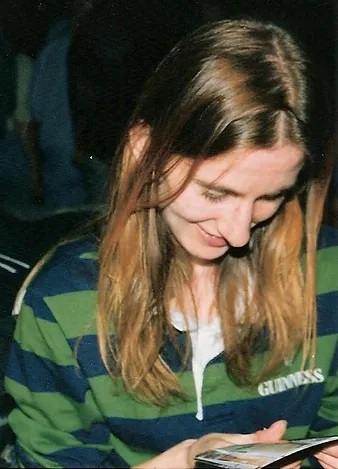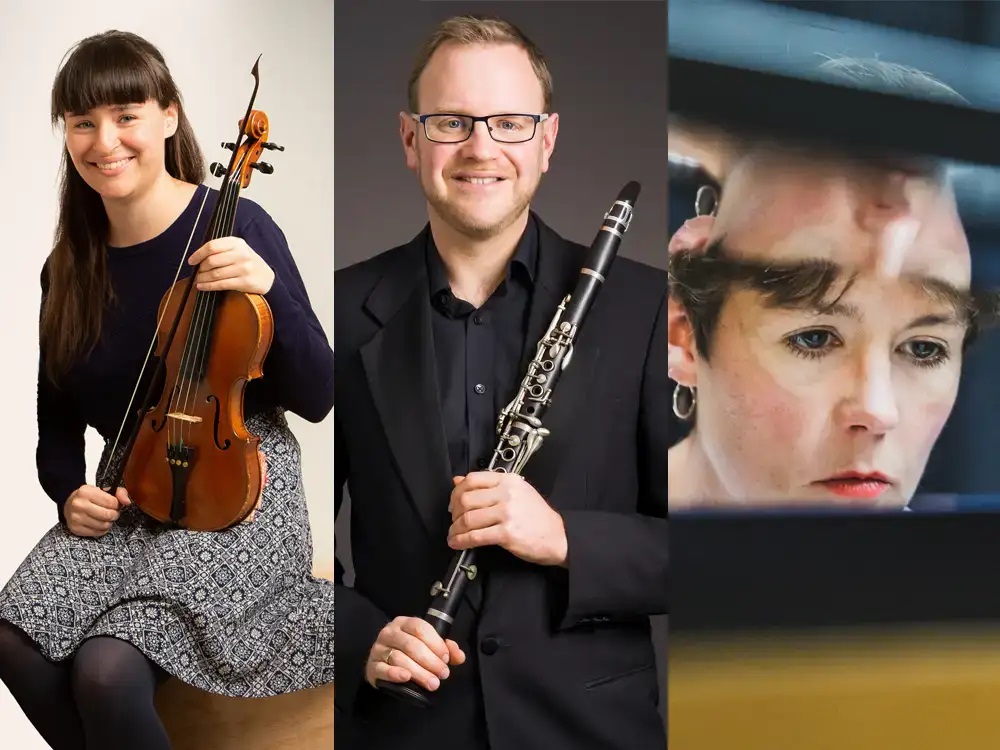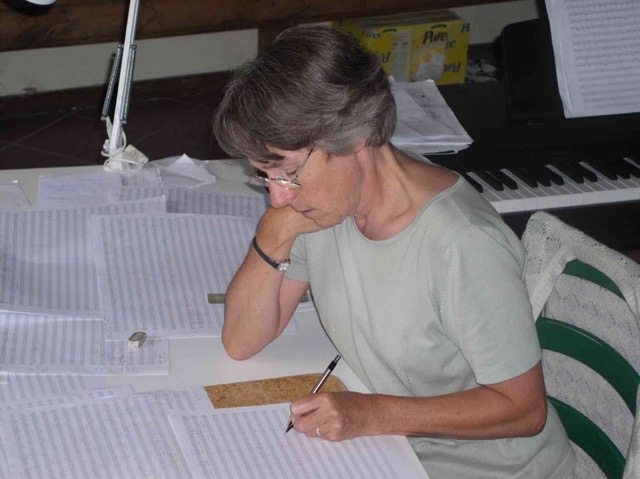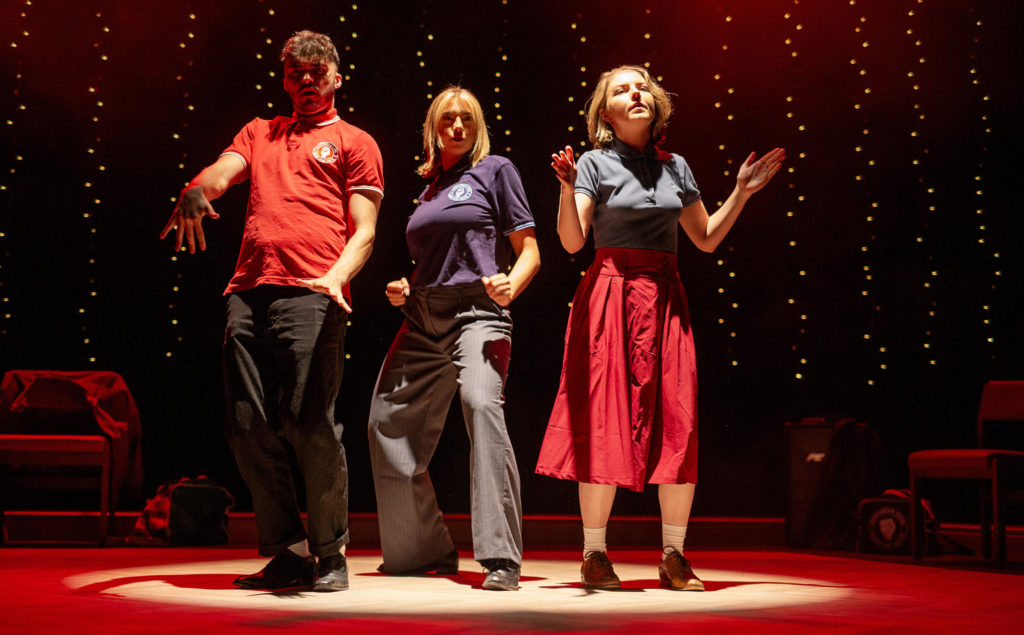
“I’M not afraid to admit I was a rather good dancer,” says playwright, director, actor and erstwhile terpsichorean tornado John Godber. “Not so good now, mind. My knees.”
His ‘tap’ these days would be on the laptop, leading to his latest play, a hymn to Northern Soul that keeps the faith with the Wigan Casino days but addresses today’s believers in Do I Love You?, on tourthis week at the Stephen Joseph Theatre, in Scarborough, where John once cut a rug at all-nighters.
“This is Northern Soul for a new generation, but with rising costs, unemployment and small-town blues, has anything really changed?” asks John, now 67. “Is this England 1973 or 2023? The pubs are closing, hospitality has gone, and strikes are everywhere…but when you’re out on the floor…”
…There you will find Godber’s twentysomethings, Sally, Nat and Kyle, as they develop a love for Northern Soul and the people absorbed in its culture across the industrial north. What started as a college project has grown into a passion, but the dance steps are exhausting.
Far beyond their home city of Hull, they find excitement, purpose and the tribe they have been seeking. Cue talcum powder, loafers and weekenders, from Brid Spa to Stoke, from Oxford to the Blackpool Tower Ballroom, as these young soulies vow to keep the faith, even as Britain crumbles, school buildings and all.
Do I Love You? Indeed he did, back in the day. “I went to all-nighters in Scarborough, Doncaster, Wakefield, Whitby, Hornsea, and even then that single [Frank Wilson’s title song] was worth £45,000,” says John.
“It’s the one that lots of people know, but lots of soulists despise it because it’s too well known! Only 200 copies were printed, and one copy recently sold for £150,000.
“There’s this really interesting thing that soulies want to keep it underground, which is difficult, particularly when the BBC Proms did a Northern Soul Prom last summer [July 15 2023, curated by broadcaster and writer Stuart Maconie], gentrifying it with symphonic arrangements, of course!”
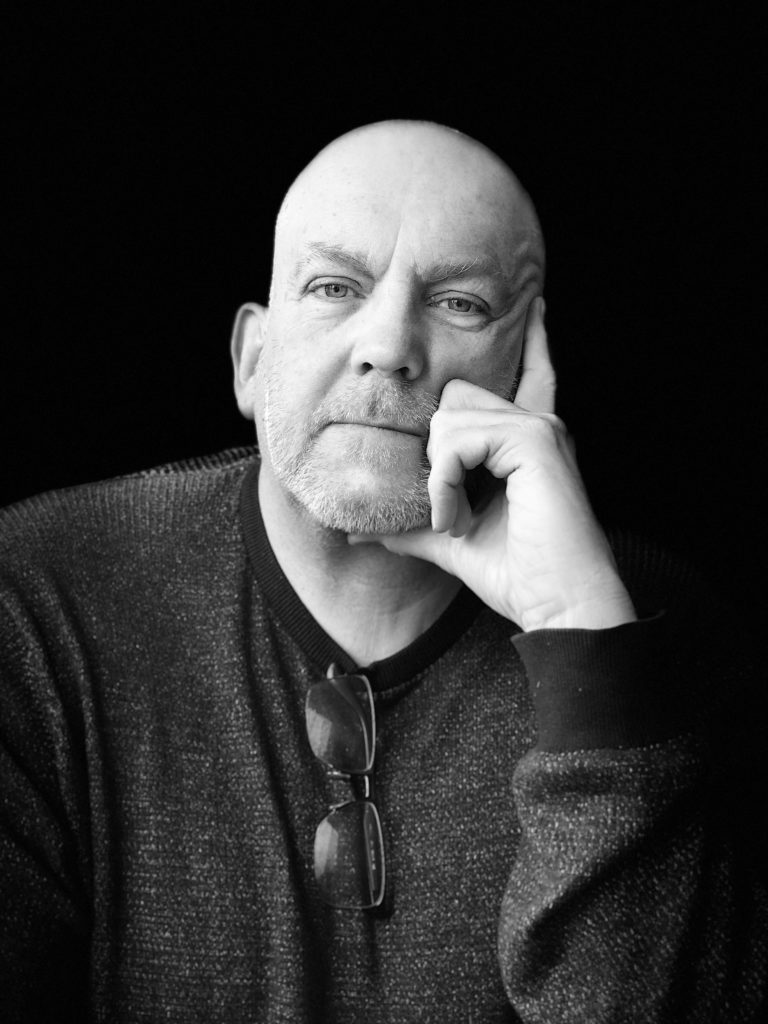
John recalls his dancing nights and early single acquisitions. “Dobie Gray’s Out On The Floor was my first one, then The Flasher, the instrumental by Mistura, and then you’re on to Al Wilson’s The Snake,” he says.
“Every church hall had a Northern Soul night, every youth club had a Northern Soul Night back then. For every song, they danced throughout and clapped in time together because the music realy meant something to them.
“Before we opened the tour last September , the cast went to a soul night at an ex-servicemen’s club, where they played Frank Wilson’s Do I Love You?, and they came away saying, ‘oh my God, it’s all true’.
After a run of state-of-the-nation plays (Shafted, 2015; Scary Bikers, 2018, Sunny Side Up, 2020; Living On Fresh Air, 2023), Godber’s latest comedy is more of a celebration, albeit with politics still at its rotten core.
“I’m interested in enclosed environments: nightclubs [Bouncers], schools [Teechers], gymnasiums [Gym And Tonic], now the Northern Soul scene,” says John.
“This time there’s a lot of music, a lot of dancing, in the show, and we’ve had the world champion Northern Soul dancer, Sally Molloy, in for a couple of sessions. Just extraordinary!
“She came to the read-through to authenticate the piece and said, ‘I bless this show’, which was great because we want it to be authentic.
“Dancing was important to the casting, so we looked far and wide and even looked at auditioning some Northern Soul dancers but they just didn’t cut the mustard with the acting.”
John settled instead on a typically compact cast of Yorkshire actors Emilio Encinoso-Gil and Martha Godber and Belfast-born, Liverpool-trained newcomer Chloe McDonald.
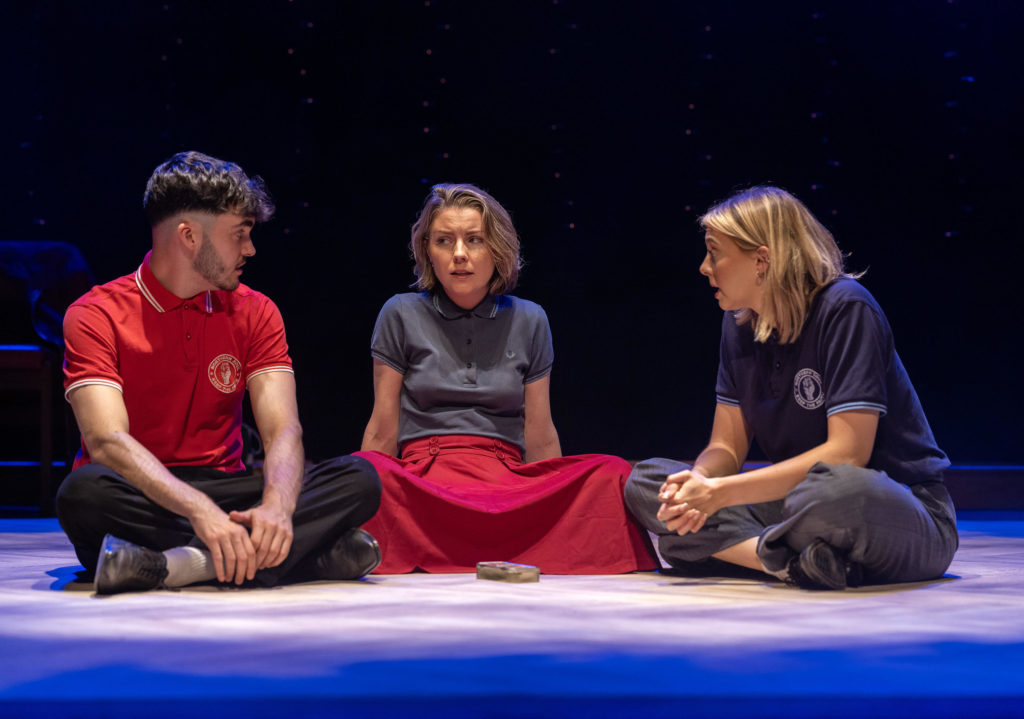
“Martha went to Northern Contemporary dance in Leeds when she was 16 and got into Trinity Laban [Conservatoire of Music and Dance], but then decided to go to LIPA (Liverpool Institute for Performing Arts) to train as an actor,” he says.
“They worked with Sally a couple of months before rehearsals started, then did a full day with her, after the read-through day, when they almost couldn’t walk for a week!”
John’s own research brought him into contact with Dr Sarah Raine, from the cultural industries department at Leeds University.
“What she’s identified is a real growth in Northern Soul, when working men’s clubs have gone, youth clubs have gone, Sunday League football has gone, funding has gone, but Northern Soul club nights go on,” says John.
“It’s an echo back to when there was pride in your work, what you do, where you fit into your community, doing something that requires a skill through the ability to dance, and conssequently you gain status in your community.
“The music is put first; it’s not about leaving with someone on your arm, unlike in Bouncers, though the drug scene is pretty clear, but after 12 hours of stomping, you’re going to need something stronger than coffee and Red Bull!
Godber’s twentysomethings in Do I Love You? work in a “chicken drive-through portal” as he euphemistically puts it. “It’s not a great place to work. Two of them have degrees, one in psychology, one in musical theatre; the other has stayed at home to look after her grandmother,” he says.
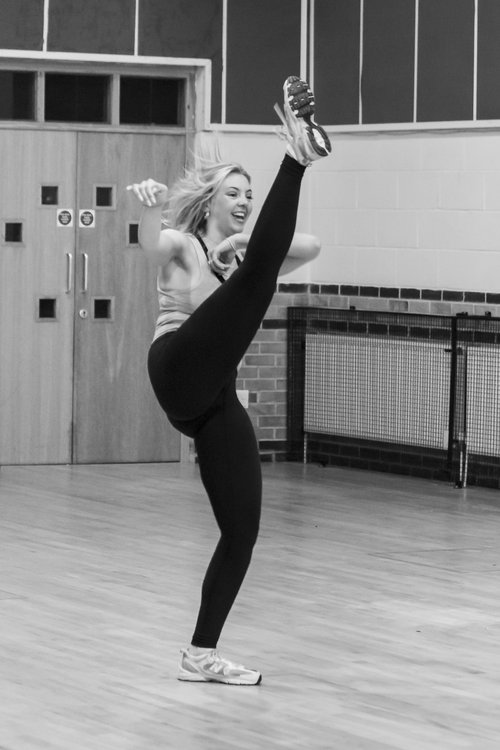
“After Covid, they’ve picked up these low-grade jobs, but the music underlines where they are in their rites of passage. They find this creed they have some sympathy with, a kind of religion, a kind of tribe, to counter domestic difficulties, loss of love and dreary jobs.”
“In 2024, with the drudgery of daily life, now it’s about finding meaning and young people feeling they’re in a safe place.”
As for keeping the faith by seeing Do I Love You?, “What’s interesting is that if you’re my age, you’ll be re-living your youth; if your’re young, in your 20s, you’ll think, ‘yes, I can see why it means so much to them’.
“Why coin that adage ‘Keep the faith’? I guess soul music is not a million miles away from religion, so it’s not far away from faith.”
Northern Soul disciple John has a confession to make: “The full disclosure is, I was really into Northern Soul, but I was also into prog-rock,” he says. “That was my intellectual side. Northern Soul was my spiritual side.”
John Godber Company in Do I Love You?, Stephen Joseph Theatre, Scarborough, until Saturday, 7.30pm nightly; 1.30pm tomorrow; 2.30pm, Saturday. Box office: 01723 370541 or sjt.uk.com.
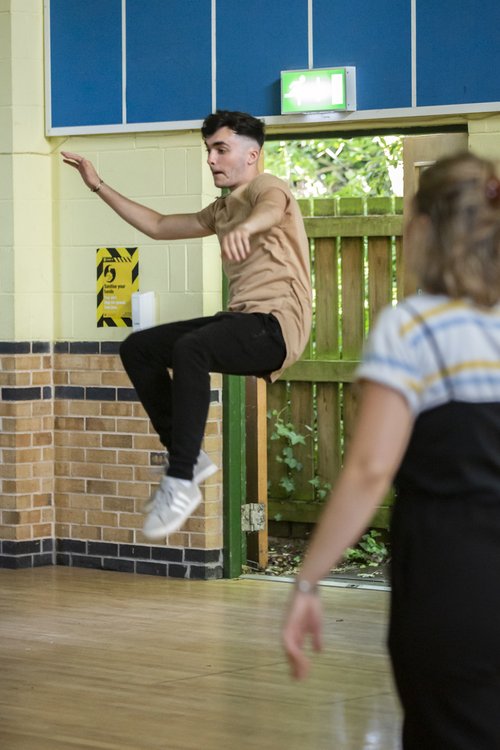
Did you know?
NORTHERN Soul dancers, in their flat, slippy shoes, would dust the dancefloor with talcum powder to make their moves glide more easily, countering the stickiness of spilt beer. “But talc is frowned on these days because it’s carciogenic,” says John.
Did you know too?
RARE American soul songs, expressing pain and suffering, were favoured over slick Motown chartbusters by the working-class, predominantly male dance crowds that gathered at burgeoning Northern Soul nights across the north in the late-1960s and early 1970s. Football fans on away days would bring back records from London record shops.
What is John Godber’s favourite Northern Soul record?
TOBI Legend’s Time Will Pass You By. “It’s a song about dying, which makes it utterly existential,” says John.
REVIEW: Do I Love You?, from when John Godber’s premiere opened at Wakefield Theatre Royal in September 2023
TWO Big Egos In A Small Car podcasters Charles Hutchinson and Graham Chalmers discuss John Godber’s Do I Love You? and last autumn’s premiere of Alan Ayckbourn’s Constant Companions, at the Stephen Joseph Theatre, Scarborough, in Episode 152.
Head to 12 minutes 45 seconds into: https://www.buzzsprout.com/1187561/13689546

